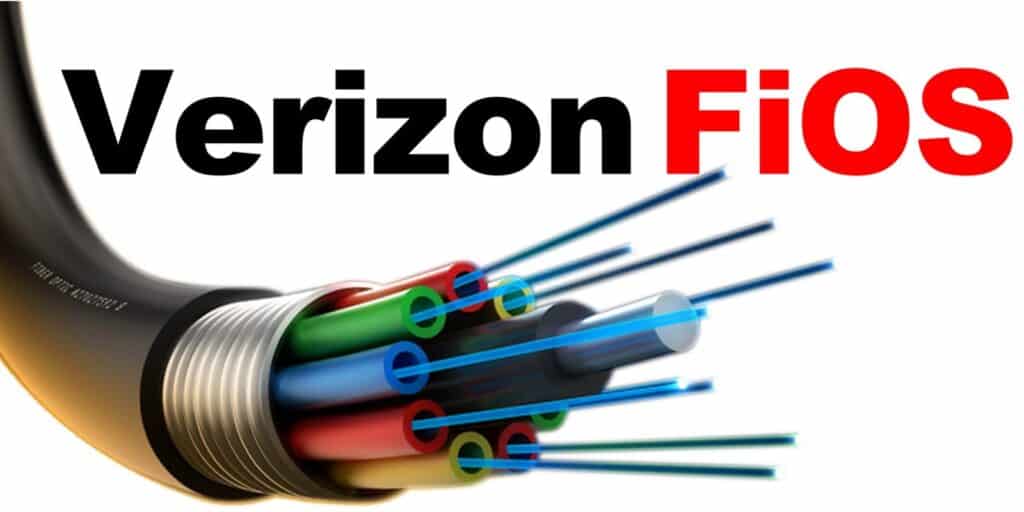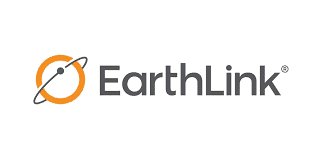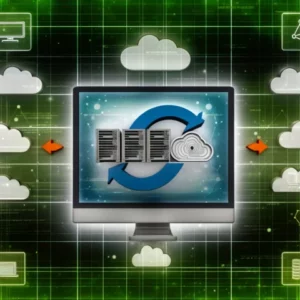Finding the correct combination of pricing, speed, infrastructure, and logistics when choosing an internet service provider (ISP) is essential. While cost is always a consideration. You should also think about which connection type best matches your internet usage habits. Like, such as what speeds you’ll need, and which providers serve your area. For example, a family of five will most certainly have different needs than a hardcore player.
However, in the United States, there are hundreds of internet service providers ranging from a few large, countrywide ISPs to a slew of smaller, local ones (or subsidiaries of large providers). We’ve combed through several ISPs throughout the market and created a list.
What we will see here?
1. AT&T Internet service provider

Firstly, AT&T offers a wide range of internet services all of which are excellent choices. Moreover, AT&T Internet service provider has won the J.D Powers customer satisfaction award for outstanding service four years in a row, and the company’s pricing is competitive across the board. With WiFi capabilities, limitless internet access, and quicker upload rates than competitors. In fact, the 1000 Mbps is enough to power a whole house. AT&T also provides a fantastic smartphone app that makes maintaining your smart home much easier.
Advantages:
The accuracy rating is 99 percent.
Fiber plans are available at high speeds.
Customer satisfaction ratings are high.
Disadvantages:
Some plans have a limited coverage region.
It is expensive.
2. Verizon Fios Internet service provider

Firstly, Verizon Fios may be the right Internet service provider (ISP) for you. If you require a lot of speed. Verizon Fios is the place to go for gamers, streamers, and anybody else who wants fast internet or a lot of capacity at the same time. However, thanks to a network of fiber-optic connections that can offer rates of up to 940 Mbps. Nonetheless, there are no long-term agreements with Verizon Fios, and it boasts a 99.99 percent service rating for fast, stable, and limitless connectivity.
Advantages:
High-speed connection with a 99.9% uptime guarantee
Bundles of services for more budget
Gamers, families, and stream hogs will love this choice.
Disadvantages:
Only ten states have it.
There are no public WiFi hotspots.
3. Xfinity Internet service provider

Firstly, Xfinity provides high-speed cable and fiber internet with plans to suit almost every requirement. Moreover, Xfinity Internet includes many features that will keep things exciting for gamers, streamers, multiple users, and families. There are 7 different Xfinity Internet packages to choose from. Including a prepaid month-to-month payment option. Depending on how crucial speed is to customers. They can pick between cable and fiber. Xfinity Internet is more accessible and cheap than many competitors, with coverage in 40 states.
Advantages:
Speeds that are steady and fast
There are a variety of plans to pick from, as well as no-contract possibilities.
Plans include a variety of fun additions.
Disadvantages:
Xfinity equipment is not available for purchase.
There was a lot of equipment rental upselling.
4. Earthlink Internet service provider

EarthLink is a well-known internet service provider. It’s been operating since the 1990s, and it’s spent that time expanding its empire and reputation. We’d say EarthLink is doing an excellent job, with over 200 million satisfied consumers.
EarthLink provides a selection of fiber and DSL internet options at various speeds. So, from mild streaming and internet consumption to intensive gaming. Multiple user streaming, and even commercial plans up to 1000 Mbps. You may select a package that suits your demands. There are no data limits with EarthLink. As a result, you’ll never be slowed down when surfing the web.
Advantages:
There are no data limits.
There are several plans to pick from.
Outstanding customer service
Disadvantages:
Plans are a little more expensive than those offered by other Internet service providers.
Availability varies per area.
5. Cox Internet service provider

Cox is a speed Internet service provider. A genuine stylish kid on the block. This is since this internet provider provides all of the necessary services and does not keep anything back. You may obtain major security measures incorporated into your gadgets. Such as a digital data shredder, vulnerability scanner, and spyware protection. Cox also provides reliable, fast internet connections that are designed for specific needs. Cox also offers full-house WiFi connectivity for every space and device in your home. With over 3 million hotspots across the country.
Advantages:
Attractive features at a low cost
Prepaid internet is available as part of the flexible plans.
For practically lag-free gaming, there’s a special gamer mode.
Disadvantages:
Only 19 states have it.
It’s difficult to determine cost instantly.
6. Spectrum- Internet Service provider

On their network, Spectrum Internet has over 450 million IP devices. They have a simple approach to internet services, with no data limitations in place until the end of 2023. While there is no evidence that Charter intends to impose data caps when the requirement expires, it is simple to compute the savings until then by comparing prices with competitors who offer data upsells and extra fees.
Spectrum’s return policy and 30-day customer satisfaction assurance are also open and straightforward. Spectrum offers a deal buyback program (maximum $500) to entice new customers to transfer. Furthermore, because Spectrum customers are not bound by any contracts, they are always free to shop around for better deals that meet their needs. While the cheapest plan is $49.99, there are a variety of plans, packages, and rates available depending on where you reside and which activities you bundle. However, there are advantages and disadvantages to consider before choosing Spectrum for your company’s or family’s internet, TV, and voice service.
Advantages:
Voice, TV, and the internet can all be bundled together.
There is no data limit.
As much coverage as possible.
Disadvantages:
Upload speeds are not the fastest.
For a larger charge, you can get a faster download.
In low-density areas, access is limited.
What types of Internet service providers?
Today, there are a variety of internet service providers to choose from. Each with different extents of quality and reliability. It’s worth noting that not all sorts of connections are available in every region of the country. So, while one sort of connection could be better or quicker. It won’t help you if it isn’t available in your state or neighborhood. It’s recommended to check for an Internet service provider with coverage in your location and then choose from that list. The following are the most common types of Internet Service Provider (ISP) connections:
- Fiber optic
- Cable
- DSL
- Satellite
- Wi-Fi broadband
- Dedicated leased line
How Much Does an Internet Service Provider Cost?
Firstly, the cost of internet service providers varies based on the service. The type of internet connection, and the services you desire. The typical monthly fee ranges from $20 to $80, but there are plans for more. In most cases, internet service providers offer longer contracts at a lower price. Bundling your internet connection with other services offered by the supplier might potentially save you money.
An early withdrawal charge is something to be wary of. You might be charged anything from a few hundred dollars if you sign a long contract and wish to cancel before the deadline.
Points to consider before you opt for Internet Service Provider:
In terms of quality, customer service, and dependability, Internet service providers vary. To select the finest Internet service provider for you, do some research, check internet reviews, and ask around. You may also take advantage of some of these expert recommendations to get the most from your internet service provider
Choose the right speed for your needs
If you live alone, 25 Mbps is plenty for stable high-speed internet. This will offer you enough speed to perform most things you desire. Like as browsing the web, updating your social media accounts, and streaming the occasional video. On the other hand, if you have a large number of people streaming HD movies or attempting to get serious work done on your internet. You’ll need more power.
Reliability
When picking an internet service provider, this is perhaps the most important feature to check for. Some companies provide a service level agreement (SLA) that ensures good service. This is a once-in-a-lifetime opportunity. You should also study reviews to see which Internet service providers provide excellent customer service. That way, if something goes wrong, you can be assured that someone will be there to assist you.
Money to save
Internet service providers frequently provide extra services such as cell phone plans and television packages. In fact, if you’re already in the market for one of these services, or if you’re willing to switch. The Internet service provider will give you a discount for bundling the two.
Turn off your WiFi to save more
When you sign up for an internet subscription, several companies charge you for WiFi. Many people don’t realize they’re paying for it because it’s included in their device charges. However, if you currently have this service or have your equipment. Choosing out of the WiFi services will certainly save you some money each month.
Conclusion
If you’re like the majority of people, you spend the majority of your time online. You buy there, pay your bills there, and engage in different sorts of leisure there. And even use the internet to interact with friends, family, and business contacts. As a result, if you’re like most people, choosing an internet service provider is one of the most important decisions you’ll have to make in your daily life. There are several options available, so choose the one that best fits your needs, situation, and budget.
Verizon – Best for streaming
AT&T Internet – Best for setting up a smart home
Xfinity Internet – Best for families
EarthLink – Best for users who need lots of data
Cox – Best for gadget-lovers and tech-savvy users
Read more:
- These are the Best iPhone 13 deals should really opt for!
- How to connect to a VPN on your Mac?
- How Internet Providers Get Around War Zones
- Why is Xfinity Stream not working on Roku?














